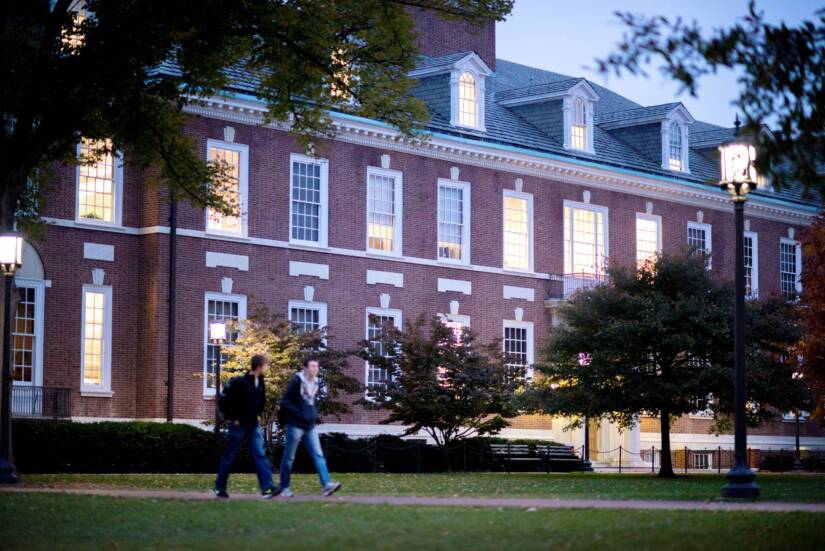Campus Security
Security professionals and off-duty Baltimore City Police Officers operate 24 hours a day, 7 days a week.
Johns Hopkins UniversityEst. 1876
America’s First Research University

In 2021, JHU launched the Innovation Fund for Community Safety, a $6 million commitment to support innovative, community-led programs addressing the root causes of violence. In 2025, JHU announced an additional $6 million investment for new projects, building on the university’s longstanding commitment to reducing violent crime in Baltimore.
The Johns Hopkins University Police Accountability Board (JH Accountability Board), unique both in Maryland and throughout the country, empowers community members from JHU and the surrounding neighborhoods to help shape the development and operation of the future Johns Hopkins Police Department (JHPD).
The JH Accountability Board originated as one of several university recommendations in the Interim Study on Approaches to Improving Public Safety On and Around Johns Hopkins University Campuses and reflects both community input and research into best practices among police departments nationally.
The Community Safety and Strengthening Act, which passed the Maryland General Assembly during the 2019 legislative session, positions the Accountability Board as a crucial element in ensuring the success, transparency, and accountability of the JHPD. The JH Accountability Board will serve as a key adviser through every step of JHPD implementation. Under the law, JH Accountability Board members are responsible for sharing community concerns directly with department leadership, reviewing police department metrics, and assessing current and prospective department policies, procedures, and trainings in order to provide recommendations for improvement. [1]
The JHPD, as authorized by the Community Safety and Strengthening Act, has begun to hire staff who are now making the idea of JHPD a reality across our campuses. Dr. Branville Bard has been appointed the inaugural JHPD Police Chief and he has hired two new leaders, Monique “Mo” Brown as Deputy Chief of Operations, and Robert “Teddy” Reed as Captain. The Department also announced over the summer of 2024 a full suite of policies and procedures that would guide the JHPD in its daily operations. The JHPD’s policies were developed in collaboration with independent experts from the National Policing Institute, a nonprofit organization dedicated to advancing excellence in policing, and 21CP Solutions, an expert consulting team made up of former law enforcement personnel, academics, civil rights lawyers, and community leaders dedicated to advancing safe, fair, equitable, and inclusive public safety solutions.
The Department is in the process of hiring front line officers and supervisors and expects to bring on many officers throughout 2025. Once officers are selected, they will enroll in officer training during the coming months and begin patrolling in a limited capacity after completion of training.
The JHU BHCST is a mobile crisis co-responder program that pairs licensed mental health clinicians with specially trained public safety personnel. The BHCST provides immediate assistance to those who need it and, just as importantly, links individuals in crisis to ongoing university support services in the days and weeks that follow. For community members in crisis who are not directly affiliated with JHU, BHCST clinicians facilitate connections to Baltimore Crisis Response, Inc. (BCRI), a well-established and highly respected community organization with significant experience helping individuals in crisis in Baltimore City.